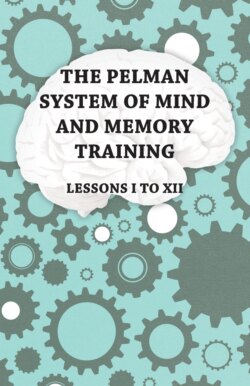Читать книгу The Pelman System of Mind and Memory Training - Lessons I to XII - Анон - Страница 13
На сайте Литреса книга снята с продажи.
Too Little Brain Work.
ОглавлениеDr. Hollander is a firm believer in mental activity as the secret of intellectual longevity. He thinks that far more people come to grief through giving the brain too little to do than through giving it too much.
“The man who has learnt by fifty how to systematise his thinking will go on improving his mental powers for many years after that critical point. The great thing is to give the brain enough to do. If you don’t, surplus energy will be accumulated and the result may be disaster.
“See what happens when a man retires from his business or profession! He slowly breaks down or goes to pieces. Why? Not because he is getting old, or because his brain has been overtaxed in the past, but simply because his brain is not given enough to do. He has lost his one real interest. There is nothing to keep his brain in ‘condition.’
“It seems to me most important that every brain worker should have at least a second string to his bow unless his profession is such that it can continue to keep him fully interested right through life. Then he will find—allowing, of course, that his health is maintained—that instead of being less mentally efficient after fifty he has the power to go on developing.”
Although some men have done their best work after 50, it must not be forgotten that they prepared for that work during the years that preceded their half-century—say from 18 or 20 onwards. Hence, there is no specific age when one should look for mental efficiency; the conditions are always changing, and the power a man is bound to have at 35 or 40, he cannot expect to have at, say, 21, although in the year of his majority he may be as good, mentally, as his years permit. Thus mental efficiency is not necessarily a fixed condition: it changes with age and experience, and the change should be progressive up to the age of 50.
